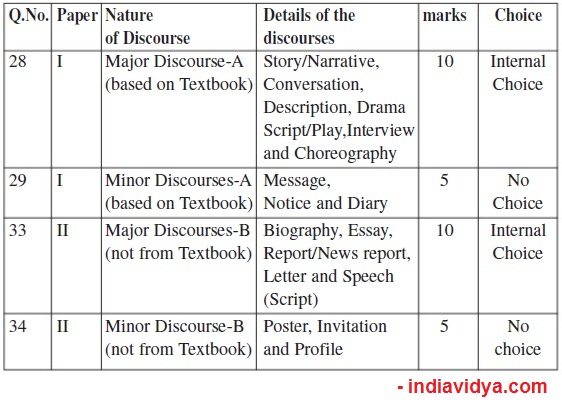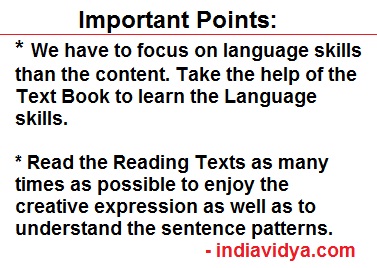Creative Writing (discourses): This section shows how creative you are to express. There are major, minor discourses. Again they are divided into Group-A and Group-B. Group-A will come in Paper-I and Group-B in paper-II. Major discourses contain 10 marks and have a
choice (one out of two).

Description is the basic major discourse. All the other discourses depend on that. So practice Description first. Description is nothing but describing the location and situation. We have
to give all the details: who are there, their features, their emotion, how is the location. Imagine the situation in your mind as a movie. Start describing one by one.
Must Read: 10th English Paper 1 and Paper 2 Important Questions
Series of events described in an order becomes narrative. It becomes story if it has any twist. Giving the communication between two or more people in direct speech, one by one becomes conversation. If there is sudden twist in the conversation in a story mode it becomes Drama script. In Drama Script (Play) we have to mention their movements and feelings in brackets, shouting in
Capital letters.
A series of events from birth to death of a person becomes biography.
Addressing, Repetition of words or sentences, Rhetoric questions and concluding words are compulsory for Speech script.
What? Why? How? Who? Where? When? Which? are to be answered in Report/News report.
Minor discourses are short in nature to communicate much in less time. Layout, design, placing are more important here.
Also Read: 10th Physics Important Questions and Answers
Remember that Major discourses Story/Narrative, Conversation, Description, Drama Script/Play, Interview & Choreography, and minor discourses Message, Notice & Diary will be given from Text book contexts. After every reading of the lesson you have to imagine possible discourses and practice.
